Frequent persons on Moldova's street signs
countries
141 names / 1286 streets
Stephen the Great
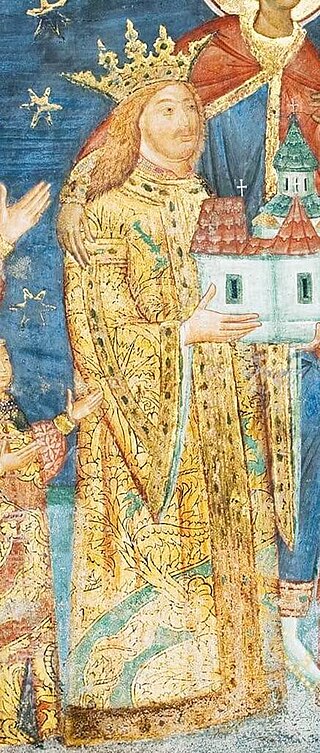 124
Stephen III, commonly known as Stephen the Great ; died on 2 July 1504), was Voivode of Moldavia from 1457 to 1504. He was the son of and co-ruler with Bogdan II, who was murdered in 1451 in a...
124
Stephen III, commonly known as Stephen the Great ; died on 2 July 1504), was Voivode of Moldavia from 1457 to 1504. He was the son of and co-ruler with Bogdan II, who was murdered in 1451 in a...
Mihai Eminescu
 69
Mihai Eminescu was a Romanian Romantic poet from Moldavia, novelist, and journalist, generally regarded as the most famous and influential Romanian poet. Eminescu was an active member of the Junimea...
69
Mihai Eminescu was a Romanian Romantic poet from Moldavia, novelist, and journalist, generally regarded as the most famous and influential Romanian poet. Eminescu was an active member of the Junimea...
Vladimir Lenin
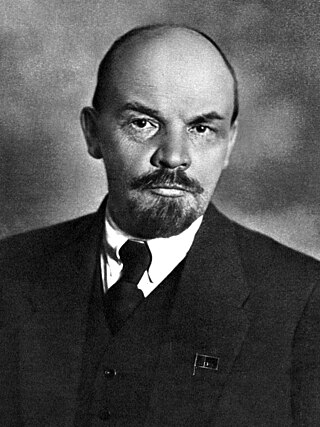 62
Vladimir Ilyich Ulyanov, better known as Vladimir Lenin, was a Russian revolutionary, Soviet politician, and political theorist who was the founder and first leader of the Russian Soviet Federative...
62
Vladimir Ilyich Ulyanov, better known as Vladimir Lenin, was a Russian revolutionary, Soviet politician, and political theorist who was the founder and first leader of the Russian Soviet Federative...
Ion Creangă
 43
Ion Creangă was a Moldavian, later Romanian writer, raconteur and schoolteacher. A main figure in 19th-century Romanian literature, he is best known for his Childhood Memories volume, his novellas...
43
Ion Creangă was a Moldavian, later Romanian writer, raconteur and schoolteacher. A main figure in 19th-century Romanian literature, he is best known for his Childhood Memories volume, his novellas...
Dimitrie Cantemir
 32
Dimitrie or Demetrius Cantemir, also known by other spellings, was a Moldavian prince, statesman, and man of letters. He twice served as voivode of Moldavia. During his second term he allied his...
32
Dimitrie or Demetrius Cantemir, also known by other spellings, was a Moldavian prince, statesman, and man of letters. He twice served as voivode of Moldavia. During his second term he allied his...
Vasile Alecsandri
 30
Vasile Alecsandri was a Romanian patriot, poet, dramatist, politician and diplomat. He was one of the key figures during the 1848 revolutions in Moldavia and Wallachia. He fought for the unification...
30
Vasile Alecsandri was a Romanian patriot, poet, dramatist, politician and diplomat. He was one of the key figures during the 1848 revolutions in Moldavia and Wallachia. He fought for the unification...
Alexander the Good
 28
Alexander I, commonly known as Alexander the Good was Voivode of Moldavia between 1400 and 1432. He was the son of Roman I and succeeded Iuga to the throne. As ruler he initiated a series of reforms...
28
Alexander I, commonly known as Alexander the Good was Voivode of Moldavia between 1400 and 1432. He was the son of Roman I and succeeded Iuga to the throne. As ruler he initiated a series of reforms...
Mikhail Frunze
 28
Mikhail Vasilyevich Frunze was a Soviet revolutionary, politician, army officer and military theorist. Born to a Bessarabian father and a Russian mother in Russian Turkestan, Frunze attended the...
28
Mikhail Vasilyevich Frunze was a Soviet revolutionary, politician, army officer and military theorist. Born to a Bessarabian father and a Russian mother in Russian Turkestan, Frunze attended the...
Yuri Gagarin
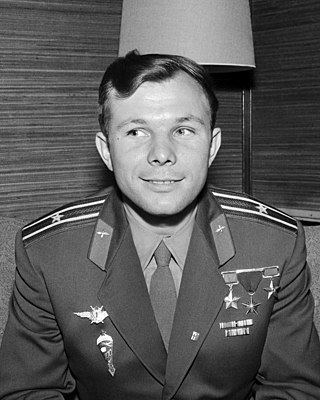 28
Yuri Alekseyevich Gagarin was a Soviet pilot and cosmonaut who, aboard the first successful crewed spaceflight, became the first human to journey into outer space. Travelling on Vostok 1, Gagarin...
28
Yuri Alekseyevich Gagarin was a Soviet pilot and cosmonaut who, aboard the first successful crewed spaceflight, became the first human to journey into outer space. Travelling on Vostok 1, Gagarin...
Alexei Mateevici
 26
Alexei Mateevici was one of the most prominent Romanian poets in Bessarabia.
26
Alexei Mateevici was one of the most prominent Romanian poets in Bessarabia.
Decebalus
 23
Decebalus, sometimes referred to as Diurpaneus, was the last Dacian king. He is famous for fighting three wars, with varying success, against the Roman Empire under two emperors. After raiding south...
23
Decebalus, sometimes referred to as Diurpaneus, was the last Dacian king. He is famous for fighting three wars, with varying success, against the Roman Empire under two emperors. After raiding south...
Alexander Pushkin
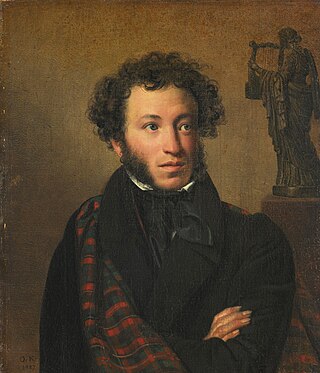 23
Alexander Sergeyevich Pushkin was a Russian poet, playwright, and novelist of the Romantic era. He is considered by many to be the greatest Russian poet, as well as the founder of modern Russian...
23
Alexander Sergeyevich Pushkin was a Russian poet, playwright, and novelist of the Romantic era. He is considered by many to be the greatest Russian poet, as well as the founder of modern Russian...
Sergey Lazo
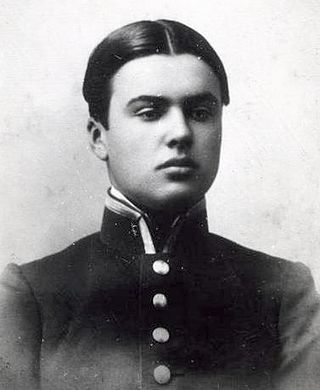 19
Sergey Georgiyevich Lazo was a Russian nobleman, officer of the Imperial Russian Army, and Bolshevik leader in the October 1917 Revolution in the Russian Far East.
19
Sergey Georgiyevich Lazo was a Russian nobleman, officer of the Imperial Russian Army, and Bolshevik leader in the October 1917 Revolution in the Russian Far East.
Nicolae Testemițanu
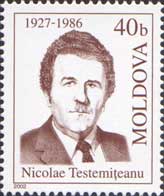 19
Nicolae Testemițanu was a Moldovan and Soviet surgeon, hygienist, and politician.
19
Nicolae Testemițanu was a Moldovan and Soviet surgeon, hygienist, and politician.
Michael the Brave
 18
Michael the Brave, born as Mihai Pătrașcu, was the Prince of Wallachia, Prince of Moldavia (1600) and de facto ruler of Transylvania (1599–1600). He is considered one of Romania's greatest national...
18
Michael the Brave, born as Mihai Pătrașcu, was the Prince of Wallachia, Prince of Moldavia (1600) and de facto ruler of Transylvania (1599–1600). He is considered one of Romania's greatest national...
Miron Costin
 16
Miron Costin was a Moldavian (Romanian) political figure and chronicler. His main work, Letopiseţul Ţărâi Moldovei [de la Aron Vodă încoace] was meant to extend Grigore Ureche's narrative, covering...
16
Miron Costin was a Moldavian (Romanian) political figure and chronicler. His main work, Letopiseţul Ţărâi Moldovei [de la Aron Vodă încoace] was meant to extend Grigore Ureche's narrative, covering...
Vasile Lupu
 16
Lupu Coci, known as Vasile Lupu, was a Voivode of Moldavia of Albanian and Greek origin between 1634 and 1653. Lupu had secured the Moldavian throne in 1634 after a series of complicated intrigues...
16
Lupu Coci, known as Vasile Lupu, was a Voivode of Moldavia of Albanian and Greek origin between 1634 and 1653. Lupu had secured the Moldavian throne in 1634 after a series of complicated intrigues...
Ion Soltîs
 14
Ion Soltîs a fost un militar sovietic, participant al celui de-Al Doilea Război Mondial și Erou al Uniunii Sovietice. A fost distins printr-un decret al prezidiului Sovietului Suprem al URSS din 10...
14
Ion Soltîs a fost un militar sovietic, participant al celui de-Al Doilea Război Mondial și Erou al Uniunii Sovietice. A fost distins printr-un decret al prezidiului Sovietului Suprem al URSS din 10...
Grigore Vieru
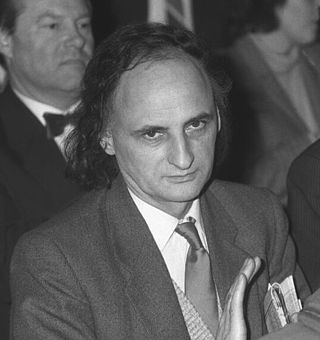 13
Grigore Vieru was a Moldovan poet, writer and unionist advocate, known for his poems and books for children. His poetry is characterized by vivid natural scenery, patriotism, as well as a venerated...
13
Grigore Vieru was a Moldovan poet, writer and unionist advocate, known for his poems and books for children. His poetry is characterized by vivid natural scenery, patriotism, as well as a venerated...
Burebista
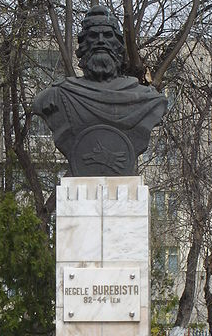 13
Burebista was the king of the Getae and Dacian tribes from 82/61 BC to 45/44 BC. He was the first king who successfully unified the tribes of the Dacian kingdom, which comprised the area located...
13
Burebista was the king of the Getae and Dacian tribes from 82/61 BC to 45/44 BC. He was the first king who successfully unified the tribes of the Dacian kingdom, which comprised the area located...
Maxim Gorky
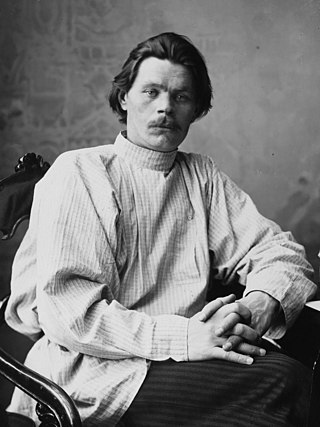 13
Alexei Maximovich Peshkov, popularly known as Maxim Gorky, was a Russian and Soviet writer and socialism proponent. He was nominated five times for the Nobel Prize in Literature. Before his success...
13
Alexei Maximovich Peshkov, popularly known as Maxim Gorky, was a Russian and Soviet writer and socialism proponent. He was nominated five times for the Nobel Prize in Literature. Before his success...
Boris Glavan
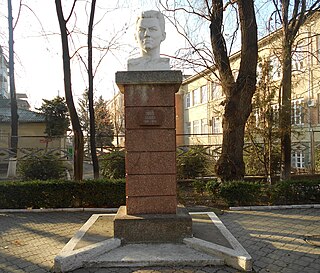 13
Boris Glavan a fost un partizan sovietic moldovean, participant activ al mișcării clandestine în timpul celui de-al doilea război mondial. A fost membru al organizației clandesitine anti-fasciste...
13
Boris Glavan a fost un partizan sovietic moldovean, participant activ al mișcării clandestine în timpul celui de-al doilea război mondial. A fost membru al organizației clandesitine anti-fasciste...
Constantin Stamati
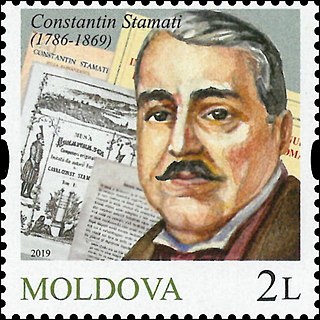 13
Constantin Stamati was a Romanian/Moldovan writer and translator. Born in Romania, he settled in Chişinău, Bessarabia after the 1812 partition of Moldavia at the end of the Russo-Turkish War.
13
Constantin Stamati was a Romanian/Moldovan writer and translator. Born in Romania, he settled in Chişinău, Bessarabia after the 1812 partition of Moldavia at the end of the Russo-Turkish War.
Alecu Donici
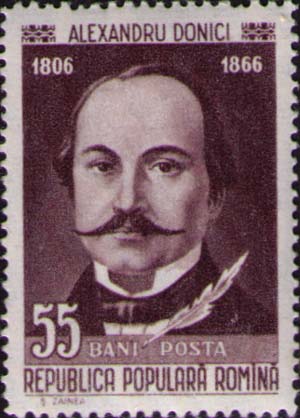 13
Alecu Donici was a Moldavian, later Romanian poet and translator.
13
Alecu Donici was a Moldavian, later Romanian poet and translator.
Mihail Sadoveanu
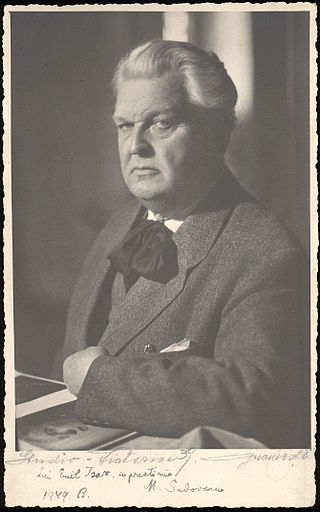 12
Mihail Sadoveanu was a Romanian novelist, short story writer, journalist and political figure, who twice served as acting head of state for the communist republic. One of the most prolific...
12
Mihail Sadoveanu was a Romanian novelist, short story writer, journalist and political figure, who twice served as acting head of state for the communist republic. One of the most prolific...
Veronica Micle
 12
Veronica Micle was an Austrian Empire-born Romanian poet, whose work was influenced by Romanticism. She is best known for her love affair with the poet Mihai Eminescu, one of the most important...
12
Veronica Micle was an Austrian Empire-born Romanian poet, whose work was influenced by Romanticism. She is best known for her love affair with the poet Mihai Eminescu, one of the most important...
Alexander Matrosov
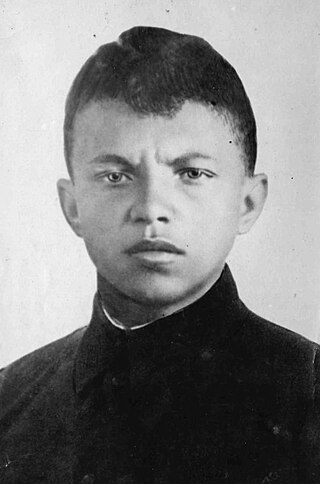 12
Alexander Matveyevich Matrosov was a Soviet infantry soldier during the Second World War, posthumously awarded the title of the Hero of the Soviet Union reportedly for blocking a German machine-gun...
12
Alexander Matveyevich Matrosov was a Soviet infantry soldier during the Second World War, posthumously awarded the title of the Hero of the Soviet Union reportedly for blocking a German machine-gun...
Doina Aldea-Teodorovici
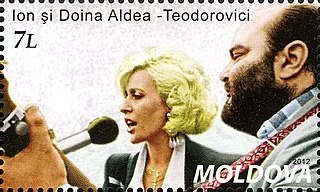 12
Doina Aldea-Teodorovici a fost o cântăreață din Republica Moldova. A fost căsătorită cu Ion Aldea-Teodorovici, cu care a format un duet, începând din 1981.
12
Doina Aldea-Teodorovici a fost o cântăreață din Republica Moldova. A fost căsătorită cu Ion Aldea-Teodorovici, cu care a format un duet, începând din 1981.
Ivan Michurin (biologist)
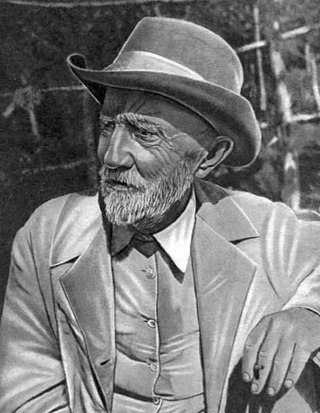 11
Ivan Vladimirovich Michurin was a Russian practitioner of selection to produce new types of crop plants, Honorable Member of the Soviet Academy of Sciences, and academician of the Lenin All-Union...
11
Ivan Vladimirovich Michurin was a Russian practitioner of selection to produce new types of crop plants, Honorable Member of the Soviet Academy of Sciences, and academician of the Lenin All-Union...
Grigore Ureche
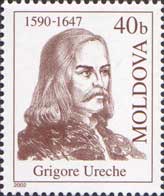 10
Grigore Ureche was a Moldavian chronicler who wrote on Moldavian history in his Letopisețul Țării Moldovei, covering the period from 1359 to 1594.
10
Grigore Ureche was a Moldavian chronicler who wrote on Moldavian history in his Letopisețul Țării Moldovei, covering the period from 1359 to 1594.
Sergei Kirov
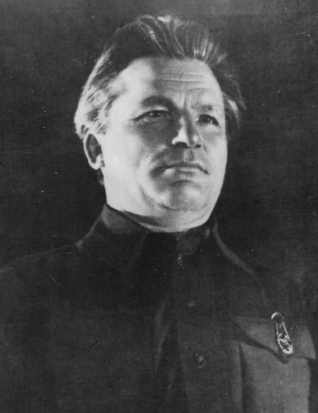 10
Sergei Mironovich Kirov was a Russian and Soviet politician and Bolshevik revolutionary.
10
Sergei Mironovich Kirov was a Russian and Soviet politician and Bolshevik revolutionary.
Grigory Kotovsky
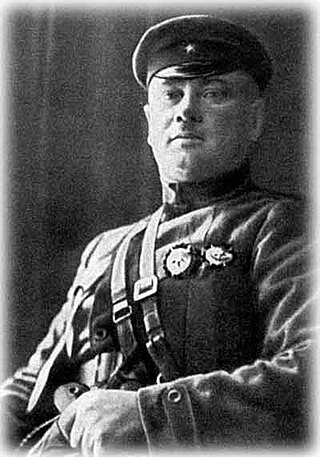 10
Grigory Ivanovich Kotovsky was a Soviet military and political activist, and participant in the Russian Civil War. He made a career from being a gangster and bank robber to eventually becoming a Red...
10
Grigory Ivanovich Kotovsky was a Soviet military and political activist, and participant in the Russian Civil War. He made a career from being a gangster and bank robber to eventually becoming a Red...
Bogdan Petriceicu Hasdeu
 10
Bogdan Petriceicu Hasdeu was a Romanian writer and philologist, who pioneered many branches of Romanian philology and history.
10
Bogdan Petriceicu Hasdeu was a Romanian writer and philologist, who pioneered many branches of Romanian philology and history.
Mikhail Lermontov
 10
Mikhail Yuryevich Lermontov was a Russian Romantic writer, poet and painter, sometimes called "the poet of the Caucasus", the most important Russian poet after Alexander Pushkin's death in 1837 and...
10
Mikhail Yuryevich Lermontov was a Russian Romantic writer, poet and painter, sometimes called "the poet of the Caucasus", the most important Russian poet after Alexander Pushkin's death in 1837 and...
Gheorghe Asachi
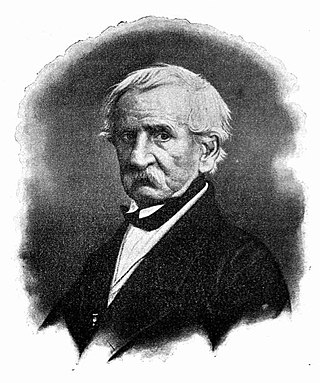 9
Gheorghe Asachi was a Moldavian, later Romanian prose writer, poet, painter, historian, dramatist, engineer, border maker, and translator. An Enlightenment-educated polymath and polyglot, he was one...
9
Gheorghe Asachi was a Moldavian, later Romanian prose writer, poet, painter, historian, dramatist, engineer, border maker, and translator. An Enlightenment-educated polymath and polyglot, he was one...
Mircea the Elder
 9
Mircea the Elder was the Voivode of Wallachia from 1386 until his death in 1418. He was the son of Radu I of Wallachia and brother of Dan I of Wallachia, after whose death he inherited the throne.
9
Mircea the Elder was the Voivode of Wallachia from 1386 until his death in 1418. He was the son of Radu I of Wallachia and brother of Dan I of Wallachia, after whose death he inherited the throne.
Varlaam Moțoc
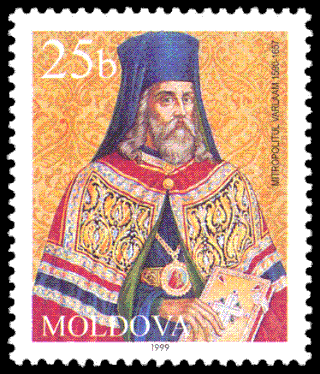 9
Varlaam Moţoc was the Metropolitan of Moldavia (1632-1653). He edited the Romanian Book of Learning in 1643.
9
Varlaam Moţoc was the Metropolitan of Moldavia (1632-1653). He edited the Romanian Book of Learning in 1643.
Vasily Chapayev
 9
Vasily Ivanovich Chapayev or Chapaev was a Russian soldier and Red Army commander during the Russian Civil War.
9
Vasily Ivanovich Chapayev or Chapaev was a Russian soldier and Red Army commander during the Russian Civil War.
Karl Marx
 9
Karl Marx was a German-born philosopher, economist, political theorist, historian, sociologist, journalist, and revolutionary socialist. His best-known works are the 1848 pamphlet The Communist...
9
Karl Marx was a German-born philosopher, economist, political theorist, historian, sociologist, journalist, and revolutionary socialist. His best-known works are the 1848 pamphlet The Communist...
Valery Chkalov
 9
Valery Pavlovich Chkalov was a test pilot awarded the title Hero of the Soviet Union (1936).
9
Valery Pavlovich Chkalov was a test pilot awarded the title Hero of the Soviet Union (1936).
Petru Rareș
 9
Petru Rareș, sometimes known as Petryła or Peter IV, was twice voivode of Moldavia: 20 January 1527 to 18 September 1538 and 19 February 1541 to 3 September 1546. He was an illegitimate child born to...
9
Petru Rareș, sometimes known as Petryła or Peter IV, was twice voivode of Moldavia: 20 January 1527 to 18 September 1538 and 19 February 1541 to 3 September 1546. He was an illegitimate child born to...
Ion Neculce
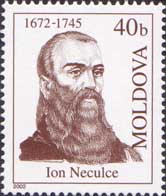 9
Ion Neculce (1672–1745) was a Moldavian chronicler. His main work, Letopisețul Țărâi Moldovei [de la Dabija Vodă până la a doua domnie a lui Constantin Mavrocordat] was meant to extend Miron Costin's...
9
Ion Neculce (1672–1745) was a Moldavian chronicler. His main work, Letopisețul Țărâi Moldovei [de la Dabija Vodă până la a doua domnie a lui Constantin Mavrocordat] was meant to extend Miron Costin's...
Tudor Vladimirescu
 8
Tudor Vladimirescu was a Romanian revolutionary hero, the leader of the Wallachian uprising of 1821 and of the Pandur militia. He is also known as Tudor din Vladimiri or, occasionally, as Domnul...
8
Tudor Vladimirescu was a Romanian revolutionary hero, the leader of the Wallachian uprising of 1821 and of the Pandur militia. He is also known as Tudor din Vladimiri or, occasionally, as Domnul...
Dosoftei
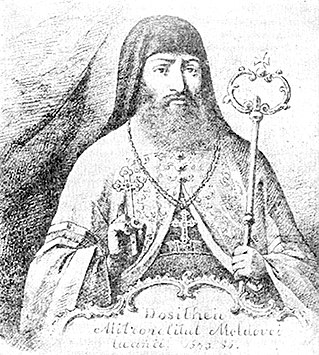 8
Dimitrie Barilă, better known under his monastical name Dosoftei, was a Moldavian Metropolitan, scholar, poet and translator.
8
Dimitrie Barilă, better known under his monastical name Dosoftei, was a Moldavian Metropolitan, scholar, poet and translator.
Constantin Negruzzi
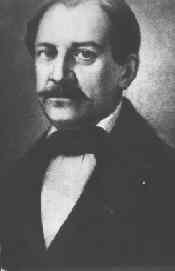 8
Constantin Negruzzi was a Romanian poet, novelist, translator, playwright, and politician.
8
Constantin Negruzzi was a Romanian poet, novelist, translator, playwright, and politician.
Trajan
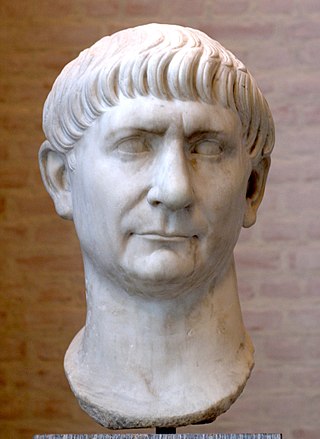 8
Trajan was a Roman emperor from AD 98 to 117, the second of the Five Good Emperors of the Nerva–Antonine dynasty. He was a philanthropic ruler and a successful soldier-emperor who led the Roman...
8
Trajan was a Roman emperor from AD 98 to 117, the second of the Five Good Emperors of the Nerva–Antonine dynasty. He was a philanthropic ruler and a successful soldier-emperor who led the Roman...
Barbu Lăutaru
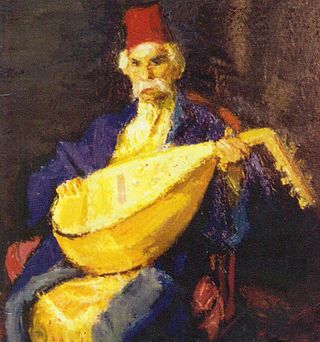 8
Barbu Lăutaru a fost un cântăreț și cobzar român, de etnie romă.
8
Barbu Lăutaru a fost un cântăreț și cobzar român, de etnie romă.
Petru Zadnipru
 8
Petru Zadnipru a fost poet din RSS Moldovenească.
8
Petru Zadnipru a fost poet din RSS Moldovenească.
Taras Shevchenko
 8
Taras Hryhorovych Shevchenko was a Ukrainian poet, writer, artist, public and political figure, folklorist and ethnographer. He was a fellow of the Imperial Academy of Arts and a member of the...
8
Taras Hryhorovych Shevchenko was a Ukrainian poet, writer, artist, public and political figure, folklorist and ethnographer. He was a fellow of the Imperial Academy of Arts and a member of the...
Toma Ciorbă
 8
Toma Ciorbă was a Russian Empire-born Romanian physician and hospital director.
8
Toma Ciorbă was a Russian Empire-born Romanian physician and hospital director.
Alecu Russo
Mihail Kogălniceanu
 7
Mihail Kogălniceanu was a Romanian liberal statesman, lawyer, historian and publicist; he became Prime Minister of Romania on October 11, 1863, after the 1859 union of the Danubian Principalities...
7
Mihail Kogălniceanu was a Romanian liberal statesman, lawyer, historian and publicist; he became Prime Minister of Romania on October 11, 1863, after the 1859 union of the Danubian Principalities...
Vlad the Impaler
 7
Vlad III, commonly known as Vlad the Impaler or Vlad Dracula, was Voivode of Wallachia three times between 1448 and his death in 1476/77. He is often considered one of the most important rulers in...
7
Vlad III, commonly known as Vlad the Impaler or Vlad Dracula, was Voivode of Wallachia three times between 1448 and his death in 1476/77. He is often considered one of the most important rulers in...
Alexander Suvorov
 7
Count Alexander Vasilyevich Suvorov-Rymniksky, Prince of Italy, was a Russian general and military theorist in the service of the Russian Empire.
7
Count Alexander Vasilyevich Suvorov-Rymniksky, Prince of Italy, was a Russian general and military theorist in the service of the Russian Empire.
Eugen Doga
 7
Eugen Doga is a Moldovan composer. He has made significant contributions to various forms of music during his career.
7
Eugen Doga is a Moldovan composer. He has made significant contributions to various forms of music during his career.
Leo Tolstoy
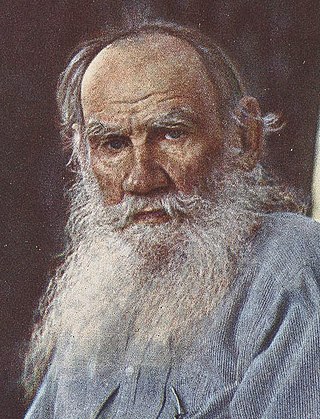 7
Count Lev Nikolayevich Tolstoy, usually referred to in English as Leo Tolstoy, was a Russian writer. He is regarded as one of the greatest and most influential authors of all time. He received...
7
Count Lev Nikolayevich Tolstoy, usually referred to in English as Leo Tolstoy, was a Russian writer. He is regarded as one of the greatest and most influential authors of all time. He received...
George Coșbuc
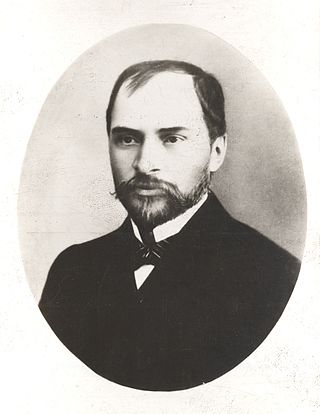 7
George Coșbuc was a Romanian poet, translator, teacher, and journalist, best remembered for his verses describing, praising and eulogizing rural life, its many travails but also its occasions for...
7
George Coșbuc was a Romanian poet, translator, teacher, and journalist, best remembered for his verses describing, praising and eulogizing rural life, its many travails but also its occasions for...
Igor Vieru
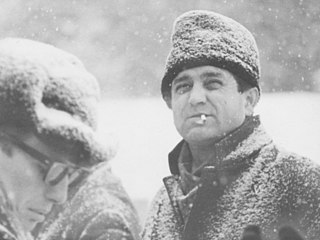 7
Igor Vieru was a painter from Moldova. The artist's home, in Cernoleuca has become a museum, where visitors can get acquainted with Igor Vieru's art. High School of Fine Arts "Igor Vieru" in Chişinău...
7
Igor Vieru was a painter from Moldova. The artist's home, in Cernoleuca has become a museum, where visitors can get acquainted with Igor Vieru's art. High School of Fine Arts "Igor Vieru" in Chişinău...
Yakov Sverdlov
 7
Yakov Mikhailovich Sverdlov was a Bolshevik Party administrator and chairman of the All-Russian Central Executive Committee from 1917 to 1919. He is sometimes regarded as the first head of state of...
7
Yakov Mikhailovich Sverdlov was a Bolshevik Party administrator and chairman of the All-Russian Central Executive Committee from 1917 to 1919. He is sometimes regarded as the first head of state of...
Felix Dzerzhinsky
 7
Felix Edmundovich Dzerzhinsky, nicknamed "Iron Felix", was a Bolshevik revolutionary and politician. From 1917 until his death in 1926, he led the first two Soviet secret police organizations, the...
7
Felix Edmundovich Dzerzhinsky, nicknamed "Iron Felix", was a Bolshevik revolutionary and politician. From 1917 until his death in 1926, he led the first two Soviet secret police organizations, the...
Valeriu Cupcea
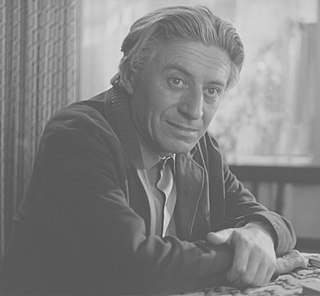 7
Valeriu Cupcea a fost un actor sovietic moldovean de teatru și film și regizor de teatru.
7
Valeriu Cupcea a fost un actor sovietic moldovean de teatru și film și regizor de teatru.
Petro Mohyla
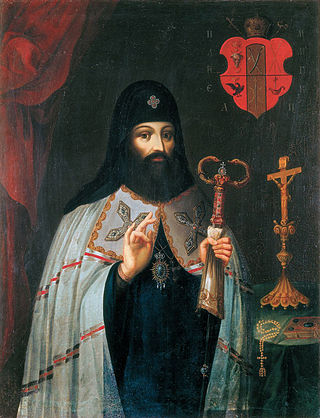 7
Petro Mohyla was the Metropolitan of Kiev, Galicia and all Rus' in the Ecumenical Patriarchate of Constantinople in the Eastern Orthodox Church from 1633 to 1646.
7
Petro Mohyla was the Metropolitan of Kiev, Galicia and all Rus' in the Ecumenical Patriarchate of Constantinople in the Eastern Orthodox Church from 1633 to 1646.
Constantin Stere
 7
Constantin G. Stere or Constantin Sterea was a Romanian writer, jurist, politician, ideologue of the Poporanist trend, and, in March 1906, co-founder of the literary magazine Viața Românească. One of...
7
Constantin G. Stere or Constantin Sterea was a Romanian writer, jurist, politician, ideologue of the Poporanist trend, and, in March 1906, co-founder of the literary magazine Viața Românească. One of...
Alexey Shchusev
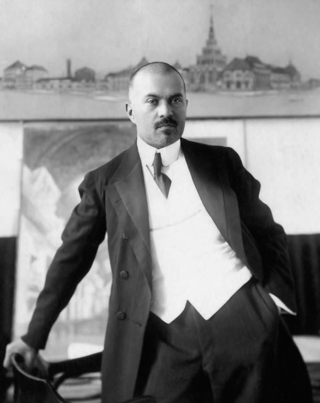 6
Alexey Victorovich Shchusev was a Russian and Soviet architect who was successful during three consecutive epochs of Russian architecture – Art Nouveau, Constructivism, and Stalinist architecture,...
6
Alexey Victorovich Shchusev was a Russian and Soviet architect who was successful during three consecutive epochs of Russian architecture – Art Nouveau, Constructivism, and Stalinist architecture,...
Nikolai Gogol
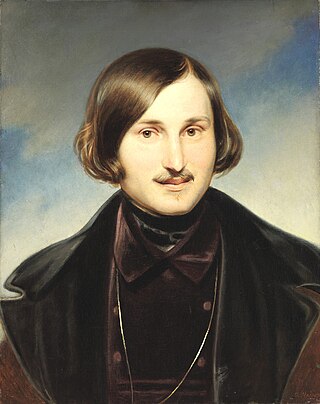 6
Nikolai Vasilyevich Gogol was a Russian novelist, short story writer, and playwright of Ukrainian origin.
6
Nikolai Vasilyevich Gogol was a Russian novelist, short story writer, and playwright of Ukrainian origin.
Kliment Voroshilov
 6
Kliment Yefremovich Voroshilov, popularly known as Klim Voroshilov, was a prominent Soviet military officer and politician during the Stalin-era. He was one of the original five Marshals of the...
6
Kliment Yefremovich Voroshilov, popularly known as Klim Voroshilov, was a prominent Soviet military officer and politician during the Stalin-era. He was one of the original five Marshals of the...
Saint Nicholas
 6
Saint Nicholas of Myra, also known as Nicholas of Bari, was an early Christian bishop of Greek descent from the maritime city of Patara in Anatolia during the time of the Roman Empire. Because of the...
6
Saint Nicholas of Myra, also known as Nicholas of Bari, was an early Christian bishop of Greek descent from the maritime city of Patara in Anatolia during the time of the Roman Empire. Because of the...
Vladimir Mayakovsky
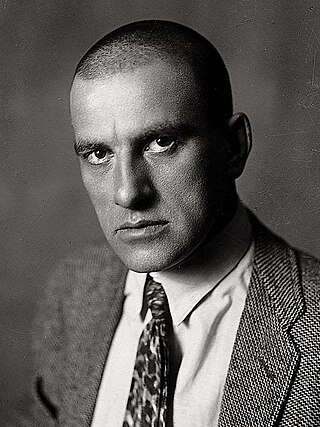 6
Vladimir Vladimirovich Mayakovsky was a Russian and Soviet poet, playwright, artist, and actor.
6
Vladimir Vladimirovich Mayakovsky was a Russian and Soviet poet, playwright, artist, and actor.
Alexandru Marinescu
 6
Alexandru Marinescu a fost un zoolog, oceanolog, istoric al științelor și muzeolog român.
6
Alexandru Marinescu a fost un zoolog, oceanolog, istoric al științelor și muzeolog român.
Dragoș, Voivode of Moldavia
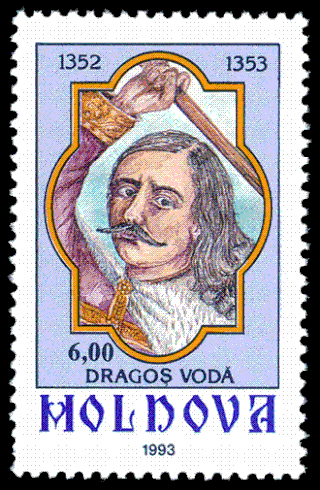 6
Dragoș, also known as Dragoș Vodă, or Dragoș the Founder was the first Voivode of Moldavia, who reigned in the middle of the 14th century, according to the earliest Moldavian chronicles. The same...
6
Dragoș, also known as Dragoș Vodă, or Dragoș the Founder was the first Voivode of Moldavia, who reigned in the middle of the 14th century, according to the earliest Moldavian chronicles. The same...
Nicolae Iorga
 5
Nicolae Iorga was a Romanian politician who held top posts, including Prime Minister and president of the Senate. He was also a historian, literary critic, memoirist, albanologist, poet and...
5
Nicolae Iorga was a Romanian politician who held top posts, including Prime Minister and president of the Senate. He was also a historian, literary critic, memoirist, albanologist, poet and...
Alexandru Lăpușneanu
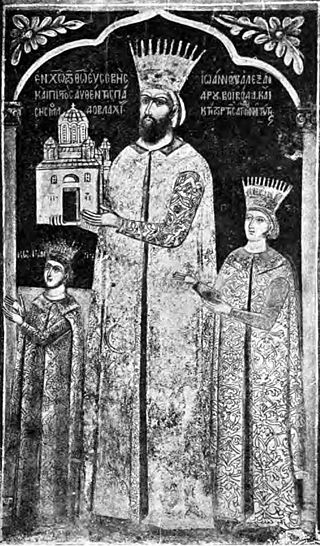 5
Alexandru IV Lăpușneanu was Ruler of Moldavia between September 1552 and 18 November 1561 and then between October 1564 and 5 May 1568. He was the son of Bogdan III the One-Eyed. His wife and consort...
5
Alexandru IV Lăpușneanu was Ruler of Moldavia between September 1552 and 18 November 1561 and then between October 1564 and 5 May 1568. He was the son of Bogdan III the One-Eyed. His wife and consort...
John III the Terrible
 5
John III the Terrible, also John III the Brave was Voivode of Moldavia between February 1572 and June 1574.
5
John III the Terrible, also John III the Brave was Voivode of Moldavia between February 1572 and June 1574.
Mikhail Lomonosov
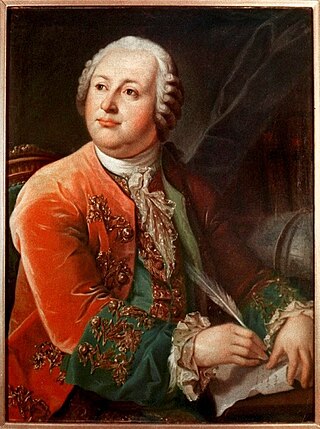 5
Mikhail Vasilyevich Lomonosov was a Russian polymath, scientist and writer, who made important contributions to literature, education, and science. Among his discoveries were the atmosphere of Venus...
5
Mikhail Vasilyevich Lomonosov was a Russian polymath, scientist and writer, who made important contributions to literature, education, and science. Among his discoveries were the atmosphere of Venus...
Mihalcea Hîncu
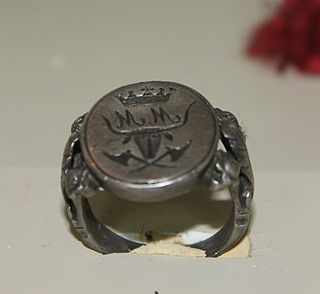 5
Mihalcea Hîncu a fost un boier moldovean.
5
Mihalcea Hîncu a fost un boier moldovean.
Грибов, Николай Степанович
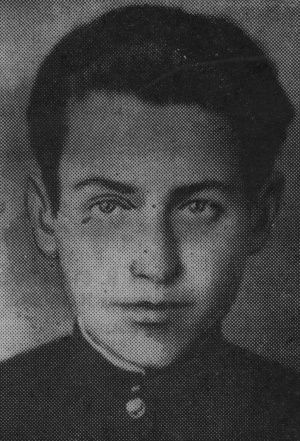 5
Николай Степанович Грибов — тракторист, ценой собственной жизни спасший хлебное поле совхоза «Щербаковский» от пожара.
5
Николай Степанович Грибов — тракторист, ценой собственной жизни спасший хлебное поле совхоза «Щербаковский» от пожара.
Ciprian Porumbescu
 5
Ciprian Porumbescu was a Romanian composer born in Șipotele Sucevei in Bukovina. He was among the most celebrated Romanian composers of his time; his popular works include Crai nou, Song of the...
5
Ciprian Porumbescu was a Romanian composer born in Șipotele Sucevei in Bukovina. He was among the most celebrated Romanian composers of his time; his popular works include Crai nou, Song of the...
Georgi Dimitrov
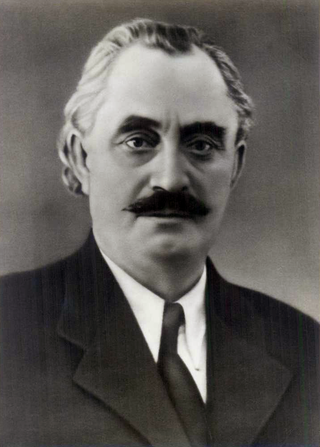 5
Georgi Dimitrov Mihaylov also known as Georgiy Mihaylovich Dimitrov, was a Bulgarian communist politician who served as General Secretary of the Bulgarian Communist Party from 1946 to 1949. From 1935...
5
Georgi Dimitrov Mihaylov also known as Georgiy Mihaylovich Dimitrov, was a Bulgarian communist politician who served as General Secretary of the Bulgarian Communist Party from 1946 to 1949. From 1935...
Nikolai Spathari
 4
Nikolai Spathari, also known as Nicolae Milescu and Nicolae Milescu Spătaru, or Spătarul Milescu-Cârnu, was a Moldavian-born writer, diplomat and traveler, who lived and worked in the Tsardom of...
4
Nikolai Spathari, also known as Nicolae Milescu and Nicolae Milescu Spătaru, or Spătarul Milescu-Cârnu, was a Moldavian-born writer, diplomat and traveler, who lived and worked in the Tsardom of...
Ivan Pavlov
 4
Ivan Petrovich Pavlov was a Russian and Soviet experimental neurologist and physiologist known for his discovery of classical conditioning through his experiments with dogs.
4
Ivan Petrovich Pavlov was a Russian and Soviet experimental neurologist and physiologist known for his discovery of classical conditioning through his experiments with dogs.
Matei Basarab
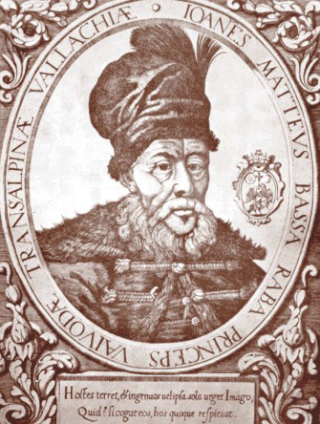 4
Matei Basarab was a Wallachian Voivode (Prince) between 1632 and 1654.
4
Matei Basarab was a Wallachian Voivode (Prince) between 1632 and 1654.
Saint George
 4
Saint George, also George of Lydda, was an early Christian martyr who is venerated as a saint in Christianity. According to tradition, he was a soldier in the Roman army. Of Cappadocian Greek origin,...
4
Saint George, also George of Lydda, was an early Christian martyr who is venerated as a saint in Christianity. According to tradition, he was a soldier in the Roman army. Of Cappadocian Greek origin,...
Liviu Deleanu
 4
Liviu Deleanu was a Moldovan and Romanian poet and playwright, a doyen of postwar Moldovan literature.
4
Liviu Deleanu was a Moldovan and Romanian poet and playwright, a doyen of postwar Moldovan literature.
Maria Drăgan
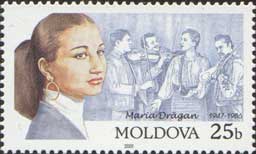 4
Maria Drăgan a fost o interpretă moldoveană de muzică populară.
4
Maria Drăgan a fost o interpretă moldoveană de muzică populară.
Valerian Kuybyshev
 4
Valerian Vladimirovich Kuybyshev was a Russian revolutionary, Red Army officer, and prominent Soviet politician.
4
Valerian Vladimirovich Kuybyshev was a Russian revolutionary, Red Army officer, and prominent Soviet politician.
Vladimir Komarov
 4
Vladimir Mikhaylovich Komarov was a Soviet test pilot, aerospace engineer, and cosmonaut. In October 1964, he commanded Voskhod 1, the first spaceflight to carry more than one crew member. He became...
4
Vladimir Mikhaylovich Komarov was a Soviet test pilot, aerospace engineer, and cosmonaut. In October 1964, he commanded Voskhod 1, the first spaceflight to carry more than one crew member. He became...
Alexandru Plămădeală
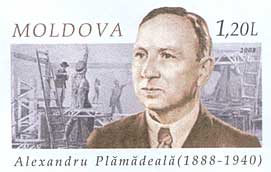 4
Alexandru Plamădeală (1888–1940) was a Moldovan sculptor. He was the artist responsible for the creation of the Stephen the Great Monument in Chișinău (1927).
4
Alexandru Plamădeală (1888–1940) was a Moldovan sculptor. He was the artist responsible for the creation of the Stephen the Great Monument in Chișinău (1927).
Ștefan Neaga
 4
Ștefan Neaga was a Moldovan and Soviet composer. He was the son of the Moldovan "Lautar" folk musician Timofei Neaga.
4
Ștefan Neaga was a Moldovan and Soviet composer. He was the son of the Moldovan "Lautar" folk musician Timofei Neaga.
Ion Vatamanu
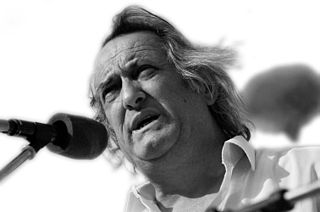 4
Ion Vatamanu was a chemist, writer, and politician from Moldova. He served as member of the Parliament of Moldova (1990–1994) and chairman of the Committee on Culture of the Parliament of Moldova.
4
Ion Vatamanu was a chemist, writer, and politician from Moldova. He served as member of the Parliament of Moldova (1990–1994) and chairman of the Committee on Culture of the Parliament of Moldova.
Liviu Damian
 4
Liviu Damian was an author, essayist, journalist, poet, cultural person, Romanian writer and translator from the Republic of Moldova, a representative of the generation of the 1960s.
4
Liviu Damian was an author, essayist, journalist, poet, cultural person, Romanian writer and translator from the Republic of Moldova, a representative of the generation of the 1960s.
Vasile Stroescu
 4
Vasile Vasilievici Stroescu, also known as Vasile de Stroesco, Basile Stroesco, or Vasile Stroiescu, was a Bessarabian and Romanian politician, landowner, and philanthropist. One of the proponents...
4
Vasile Vasilievici Stroescu, also known as Vasile de Stroesco, Basile Stroesco, or Vasile Stroiescu, was a Bessarabian and Romanian politician, landowner, and philanthropist. One of the proponents...
Michael (archangel)
 4
Michael, also called Saint Michael the Archangel, Archangel Michael and Saint Michael the Taxiarch is an archangel in Judaism, Christianity, Islam, and the Baha'i faith. The earliest surviving...
4
Michael, also called Saint Michael the Archangel, Archangel Michael and Saint Michael the Taxiarch is an archangel in Judaism, Christianity, Islam, and the Baha'i faith. The earliest surviving...
Tamara Ciobanu
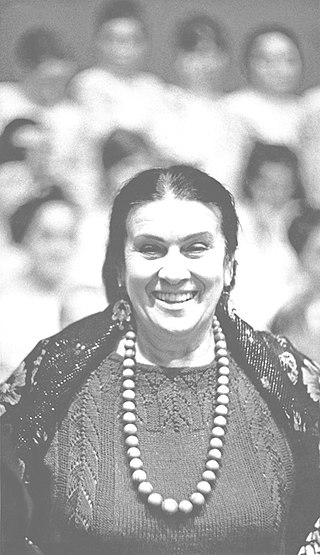 4
Tamara Ciobanu a fost o cântăreață de operă și muzică populară din RSS Moldovenească.
4
Tamara Ciobanu a fost o cântăreață de operă și muzică populară din RSS Moldovenească.
Ivan Turgenev
 3
Ivan Sergeyevich Turgenev was a Russian novelist, short story writer, poet, playwright, translator and popularizer of Russian literature in the West.
3
Ivan Sergeyevich Turgenev was a Russian novelist, short story writer, poet, playwright, translator and popularizer of Russian literature in the West.
Nicolae Dimo
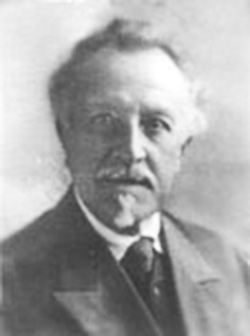 3
Nicolae Dimo a fost un specialist moldovean în domeniul pedologiei și eroziunii solului, care a fost ales ca membru titular al Academiei de Științe Agricole a URSS.
3
Nicolae Dimo a fost un specialist moldovean în domeniul pedologiei și eroziunii solului, care a fost ales ca membru titular al Academiei de Științe Agricole a URSS.
Alexandru Hâjdeu
 3
Alexandru Hâjdeu or Alexander Faddeevich Hizhdeu was a Russian Empire writer of Romanian descent, who lived in Bessarabia, now Moldova. He was the father of Romanian writer and philologist Bogdan...
3
Alexandru Hâjdeu or Alexander Faddeevich Hizhdeu was a Russian Empire writer of Romanian descent, who lived in Bessarabia, now Moldova. He was the father of Romanian writer and philologist Bogdan...
Eugen Coca
 3
Eugen Coca was a violinist and composer from the Republic of Moldova.
3
Eugen Coca was a violinist and composer from the Republic of Moldova.
Meșterul Manole
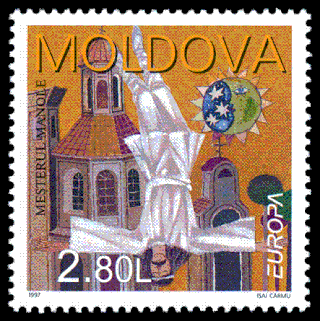 3
In Romanian mythology, Meșterul Manole was the chief architect of the Curtea de Argeș Monastery in Wallachia. The myth of the cathedral's construction is expressed in the folk poem Monastirea...
3
In Romanian mythology, Meșterul Manole was the chief architect of the Curtea de Argeș Monastery in Wallachia. The myth of the cathedral's construction is expressed in the folk poem Monastirea...
Pavlik Morozov
 3
Pavel Trofimovich Morozov, better known by the diminutive Pavlik, was a Soviet youth praised by the Soviet press as a martyr. Evidence has emerged since the dissolution of the Soviet Union of the...
3
Pavel Trofimovich Morozov, better known by the diminutive Pavlik, was a Soviet youth praised by the Soviet press as a martyr. Evidence has emerged since the dissolution of the Soviet Union of the...
Nicolae Bălcescu
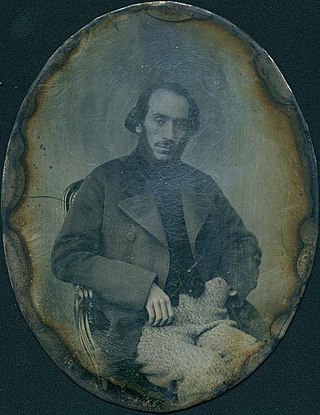 3
Nicolae Bălcescu was a Romanian Wallachian soldier, historian, journalist, and leader of the 1848 Wallachian Revolution.
3
Nicolae Bălcescu was a Romanian Wallachian soldier, historian, journalist, and leader of the 1848 Wallachian Revolution.
Elena Alistar
 3
Elena Alistar-Romanescu was a Bessarabian physician and politician who was part of Sfatul Țării from Bessarabia.
3
Elena Alistar-Romanescu was a Bessarabian physician and politician who was part of Sfatul Țării from Bessarabia.
Ion Luca Caragiale
 3
Ion Luca Caragiale, commonly referred to as I. L. Caragiale, was a Romanian playwright, short story writer, poet, theater manager, political commentator and journalist. Leaving behind an important...
3
Ion Luca Caragiale, commonly referred to as I. L. Caragiale, was a Romanian playwright, short story writer, poet, theater manager, political commentator and journalist. Leaving behind an important...
Ion Druță
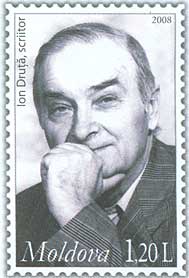 3
Ion Druță, also known as Ion Drutse, was a Moldovan writer, poet, playwright and literary historian. He was an honorary member of the Romanian Academy.
3
Ion Druță, also known as Ion Drutse, was a Moldovan writer, poet, playwright and literary historian. He was an honorary member of the Romanian Academy.
Maria Cebotari
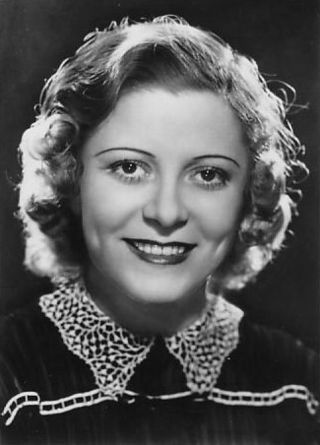 3
Maria Cebotari was a Bessarabian-Romanian lyric coloratura soprano. She was widely known as a singer by the mid 1930s and noted in particular for her wide range of repertoire.
3
Maria Cebotari was a Bessarabian-Romanian lyric coloratura soprano. She was widely known as a singer by the mid 1930s and noted in particular for her wide range of repertoire.
Zoya Kosmodemyanskaya
 3
Zoya Anatolyevna Kosmodemyanskaya was a Soviet partisan. She was executed after acts of sabotage against the invading armies of Nazi Germany; after stories emerged of her defiance towards her...
3
Zoya Anatolyevna Kosmodemyanskaya was a Soviet partisan. She was executed after acts of sabotage against the invading armies of Nazi Germany; after stories emerged of her defiance towards her...
Andrei Sakharov
 3
Andrei Dmitrievich Sakharov was a Soviet physicist and a Nobel Peace Prize laureate, which he was awarded in 1975 for emphasizing human rights around the world.
3
Andrei Dmitrievich Sakharov was a Soviet physicist and a Nobel Peace Prize laureate, which he was awarded in 1975 for emphasizing human rights around the world.
Bohdan Khmelnytsky
 3
Bohdan Zynoviy Mykhailovych Khmelnytsky was a Ruthenian nobleman and military commander of Ukrainian Cossacks as Hetman of the Zaporozhian Host, which was then under the suzerainty of the...
3
Bohdan Zynoviy Mykhailovych Khmelnytsky was a Ruthenian nobleman and military commander of Ukrainian Cossacks as Hetman of the Zaporozhian Host, which was then under the suzerainty of the...
Fyodor Tolbukhin
 3
Fyodor Ivanovich Tolbukhin was a Soviet military commander and Marshal of the Soviet Union. He is regarded as one of the finest Soviet generals of World War II.
3
Fyodor Ivanovich Tolbukhin was a Soviet military commander and Marshal of the Soviet Union. He is regarded as one of the finest Soviet generals of World War II.
Emil Loteanu
 3
Emil Loteanu was a Moldovan and Soviet film director born in what is now Moldova. He moved to Moscow in his early life. His best known films are Lăutarii, Gypsies Are Found Near Heaven, A Hunting...
3
Emil Loteanu was a Moldovan and Soviet film director born in what is now Moldova. He moved to Moscow in his early life. His best known films are Lăutarii, Gypsies Are Found Near Heaven, A Hunting...
Vasily Dokuchaev
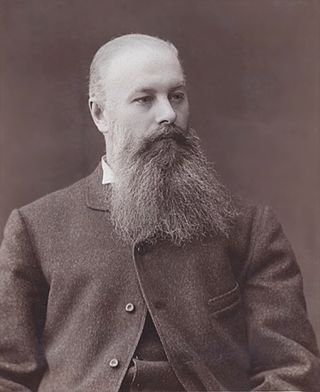 2
Vasily Vasilyevich Dokuchaev was a Russian geologist and geographer who is credited with laying the foundations of soil science. The Ukrainian city of Dokuchaievsk is named after him.
2
Vasily Vasilyevich Dokuchaev was a Russian geologist and geographer who is credited with laying the foundations of soil science. The Ukrainian city of Dokuchaievsk is named after him.
Alexander Bernardazzi
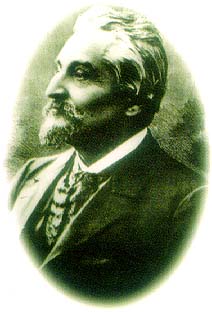 2
Aleksander Osipovich Bernardazzi was a Russian architect best known for his work in Odesa and Chişinău.
2
Aleksander Osipovich Bernardazzi was a Russian architect best known for his work in Odesa and Chişinău.
Ion Pelivan
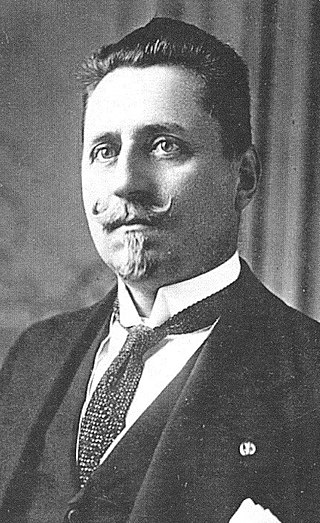 2
Ion Gheorghe Pelivan was a Romanian politician.
2
Ion Gheorghe Pelivan was a Romanian politician.
Nadia Russo
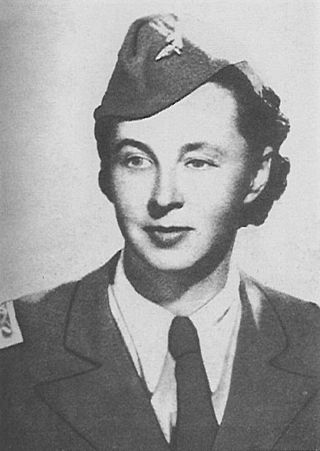 2
Nadia (Nadejda) Russo-Bossie was a Romanian military aviator during World War II. She was a member of the White Squadron, a team of female aviators who flew medical aircraft during World War II....
2
Nadia (Nadejda) Russo-Bossie was a Romanian military aviator during World War II. She was a member of the White Squadron, a team of female aviators who flew medical aircraft during World War II....
Hristo Botev
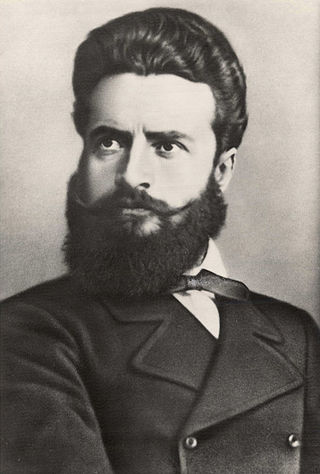 2
Hristo Botev, born Hristo Botyov Petkov, was a Bulgarian revolutionary and poet. Botev is considered by Bulgarians to be a symbolic historical figure and national hero. His poetry is a prime example...
2
Hristo Botev, born Hristo Botyov Petkov, was a Bulgarian revolutionary and poet. Botev is considered by Bulgarians to be a symbolic historical figure and national hero. His poetry is a prime example...
Мадан, Георге
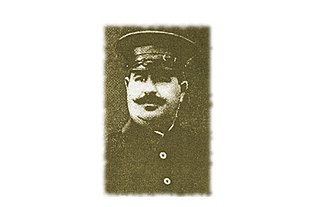 2
Георге Мадан — молдавский и румынский писатель
, журналист, редактор, актёр. Выдающийся деятель румынской культуры Бессарабии.
2
Георге Мадан — молдавский и румынский писатель
, журналист, редактор, актёр. Выдающийся деятель румынской культуры Бессарабии.
Octavian Goga
 2
Octavian Goga was a Romanian far-right politician, poet, playwright, journalist, and translator.
2
Octavian Goga was a Romanian far-right politician, poet, playwright, journalist, and translator.
Victor Crăsescu
 2
Victor Crăsescu was an Imperial Russian-born Romanian prose writer.
2
Victor Crăsescu was an Imperial Russian-born Romanian prose writer.
Ion Inculeț
 2
Ion Inculeț was a Bessarabian and Romanian politician, the President of the Country Council of the Moldavian Democratic Republic, Minister of the Interior of Romania, full member of the Romanian...
2
Ion Inculeț was a Bessarabian and Romanian politician, the President of the Country Council of the Moldavian Democratic Republic, Minister of the Interior of Romania, full member of the Romanian...
Gurie Grosu
 2
Gurie Grosu was a Bessarabian priest and the first holder of the Basarabian Metropolitan Church after 100 years of Russian occupation. His Christian name was Gheorghe, and he took the name of Gurie...
2
Gurie Grosu was a Bessarabian priest and the first holder of the Basarabian Metropolitan Church after 100 years of Russian occupation. His Christian name was Gheorghe, and he took the name of Gurie...
Vasily Zhukovsky
 2
Vasily Andreyevich Zhukovsky was the foremost Russian poet of the 1810s and a leading figure in Russian literature in the first half of the 19th century. He held a high position at the Romanov court...
2
Vasily Andreyevich Zhukovsky was the foremost Russian poet of the 1810s and a leading figure in Russian literature in the first half of the 19th century. He held a high position at the Romanov court...
Alexandru Cosmescu
 2
Alexandru Cosmescu a fost antologist, dramaturg, poet, prozator, redactor de carte, scriitor, traducător și ziarist român basarabean, membru al Uniunii Scriitorilor din Republica Moldova.
2
Alexandru Cosmescu a fost antologist, dramaturg, poet, prozator, redactor de carte, scriitor, traducător și ziarist român basarabean, membru al Uniunii Scriitorilor din Republica Moldova.
Toma Alimoș
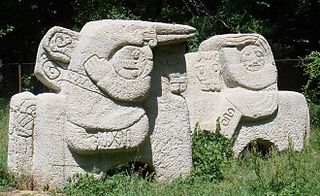 2
Toma Alimoș este un personaj mitologic din istoria românilor, personaj central în „Balada lui Toma Alimoș”, culeasă de Vasile Alecsandri și publicată în 1850 în revista Bucovina, considerată a fi...
2
Toma Alimoș este un personaj mitologic din istoria românilor, personaj central în „Balada lui Toma Alimoș”, culeasă de Vasile Alecsandri și publicată în 1850 în revista Bucovina, considerată a fi...
Aron Pumnul
 2
Aron Pumnul was a Romanian philologist and teacher as well as a national and revolutionary activist in Transylvania and later in Bukovina.
2
Aron Pumnul was a Romanian philologist and teacher as well as a national and revolutionary activist in Transylvania and later in Bukovina.
Iona Yakir
 2
Iona Emmanuilovich Yakir was a Red Army commander and one of the world's major military reformers between World War I and World War II. He was an early and major military victim of the Great Purge,...
2
Iona Emmanuilovich Yakir was a Red Army commander and one of the world's major military reformers between World War I and World War II. He was an early and major military victim of the Great Purge,...
Gavriil Musicescu
 2
Gavriil Musicescu was a Romanian composer, conductor and musicologist, father of the pianist and musical pedagogue Florica Musicescu.
2
Gavriil Musicescu was a Romanian composer, conductor and musicologist, father of the pianist and musical pedagogue Florica Musicescu.
Mihai Volontir
 2
Mihai Volontir was a Soviet and Moldovan actor. People's Artist of the USSR (1984).
2
Mihai Volontir was a Soviet and Moldovan actor. People's Artist of the USSR (1984).
Zamfir Arbore
 2
Zamfir Constantin Arbore was a Bukovinian-born Romanian political activist originally active in the Russian Empire, also known for his work as an amateur historian, geographer and ethnographer....
2
Zamfir Constantin Arbore was a Bukovinian-born Romanian political activist originally active in the Russian Empire, also known for his work as an amateur historian, geographer and ethnographer....
Andrei Lupan
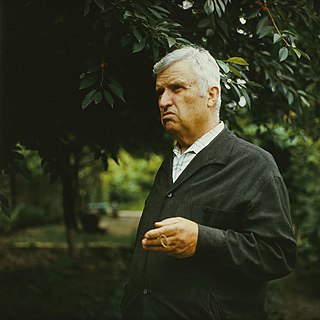 2
Andrei Lupan was a Soviet and Moldovan writer, poet, politician, and chairman of Moldovan Writers' Union.
2
Andrei Lupan was a Soviet and Moldovan writer, poet, politician, and chairman of Moldovan Writers' Union.
Alexandru Dimitrie Xenopol
 2
Alexandru Dimitrie Xenopol was a Romanian historian, philosopher, professor, economist, sociologist, and author. Among his many major accomplishments, he is the Romanian historian credited with...
2
Alexandru Dimitrie Xenopol was a Romanian historian, philosopher, professor, economist, sociologist, and author. Among his many major accomplishments, he is the Romanian historian credited with...
Anton Crihan
 2
Anton Crihan was a Bessarabian politician, lawyer, author, economist, professor and journalist. He was a member of Sfatul Țării (1917), adviser to the Secretary of State for Agriculture in the...
2
Anton Crihan was a Bessarabian politician, lawyer, author, economist, professor and journalist. He was a member of Sfatul Țării (1917), adviser to the Secretary of State for Agriculture in the...
Крученюк, Пётр Аксентьевич
 2
Пётр Аксентьевич Крученюк — советский хозяйственный, государственный и политический деятель.
2
Пётр Аксентьевич Крученюк — советский хозяйственный, государственный и политический деятель.
Karl Liebknecht
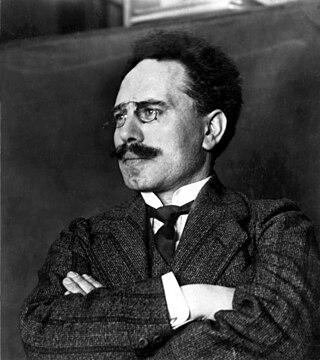 2
Karl Paul August Friedrich Liebknecht was a German socialist and anti-militarist. A member of the Social Democratic Party of Germany (SPD) beginning in 1900, he was one of its deputies in the...
2
Karl Paul August Friedrich Liebknecht was a German socialist and anti-militarist. A member of the Social Democratic Party of Germany (SPD) beginning in 1900, he was one of its deputies in the...
George Enescu
 2
George Enescu, known in France as Georges Enesco, was a Romanian composer, violinist, conductor, and teacher and is regarded as one of the greatest musicians in Romanian history.
2
George Enescu, known in France as Georges Enesco, was a Romanian composer, violinist, conductor, and teacher and is regarded as one of the greatest musicians in Romanian history.
Constantin Vârnav
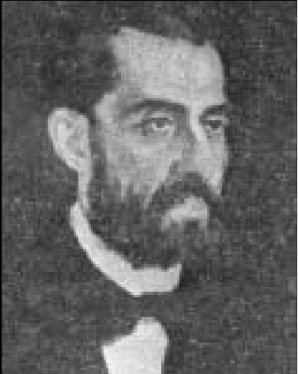 2
Constantin Vârnav, ortografiat și Vîrnav, a fost un medic român, protomedic al Moldovei între anii 1849-1855, organizator al sistemului sanitar în Moldova
și deputat în Parlamentul României.
2
Constantin Vârnav, ortografiat și Vîrnav, a fost un medic român, protomedic al Moldovei între anii 1849-1855, organizator al sistemului sanitar în Moldova
și deputat în Parlamentul României.
Bogdan the Founder
 2
Bogdan I, commonly known as Bogdan the Founder, was the first independent ruler, or voivode, of Moldavia in the 1360s. He had initially been the voivode, or head, of the Vlachs in the Voivodeship of...
2
Bogdan I, commonly known as Bogdan the Founder, was the first independent ruler, or voivode, of Moldavia in the 1360s. He had initially been the voivode, or head, of the Vlachs in the Voivodeship of...
Andrew the Apostle
 2
Andrew the Apostle, also called Saint Andrew, was an apostle of Jesus. According to the New Testament, he was a fisherman and one of the Twelve Apostles chosen by Jesus. The title First-Called stems...
2
Andrew the Apostle, also called Saint Andrew, was an apostle of Jesus. According to the New Testament, he was a fisherman and one of the Twelve Apostles chosen by Jesus. The title First-Called stems...
Gheorghe Malarciuc
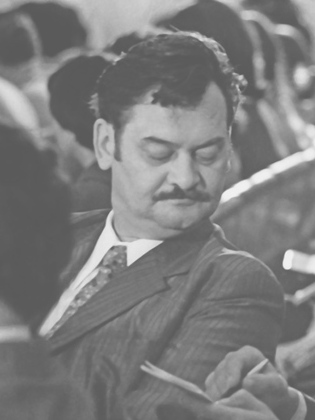 2
Gheorghe Malarciuc was a screenwriter and politician from Moldova. He served as the first head of the Ecologist Party of Moldova "Green Alliance". He graduated in 1956 from Moldova State University...
2
Gheorghe Malarciuc was a screenwriter and politician from Moldova. He served as the first head of the Ecologist Party of Moldova "Green Alliance". He graduated in 1956 from Moldova State University...
Elijah
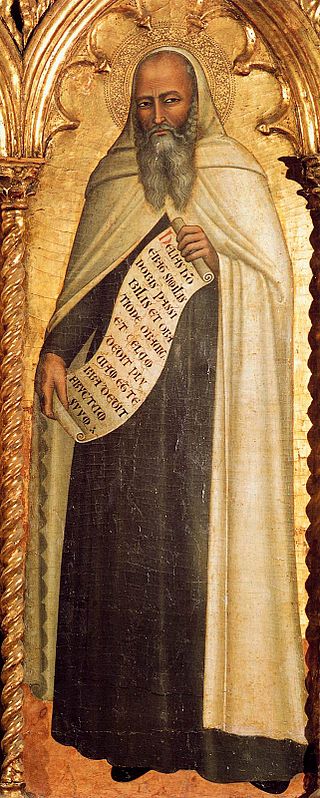 2
Elijah was, according to the Books of Kings in the Hebrew Bible, a prophet and a miracle worker who lived in the northern kingdom of Israel during the reign of King Ahab.
2
Elijah was, according to the Books of Kings in the Hebrew Bible, a prophet and a miracle worker who lived in the northern kingdom of Israel during the reign of King Ahab.
Nikolay Pirogov
 2
Nikolay Ivanovich Pirogov was a Russian scientist, medical doctor, pedagogue, public figure, and corresponding member of the Russian Academy of Sciences (1847), one of the most widely recognized...
2
Nikolay Ivanovich Pirogov was a Russian scientist, medical doctor, pedagogue, public figure, and corresponding member of the Russian Academy of Sciences (1847), one of the most widely recognized...
Oleg Koshevoy
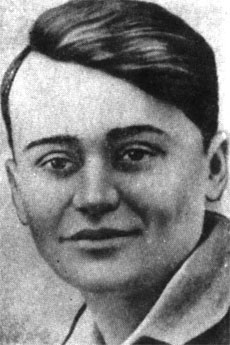 2
Oleg Vasilyevich Koshevoy was a Soviet partisan and one of the founders of the clandestine organization Young Guard, which fought the Nazi forces in Krasnodon during World War II between 1941 and...
2
Oleg Vasilyevich Koshevoy was a Soviet partisan and one of the founders of the clandestine organization Young Guard, which fought the Nazi forces in Krasnodon during World War II between 1941 and...
Sergei Yesenin
 2
Sergei Alexandrovich Yesenin, sometimes spelled as Esenin, was a Russian lyric poet. He is one of the most popular and well-known Russian poets of the 20th century. One of his narratives was "lyrical...
2
Sergei Alexandrovich Yesenin, sometimes spelled as Esenin, was a Russian lyric poet. He is one of the most popular and well-known Russian poets of the 20th century. One of his narratives was "lyrical...